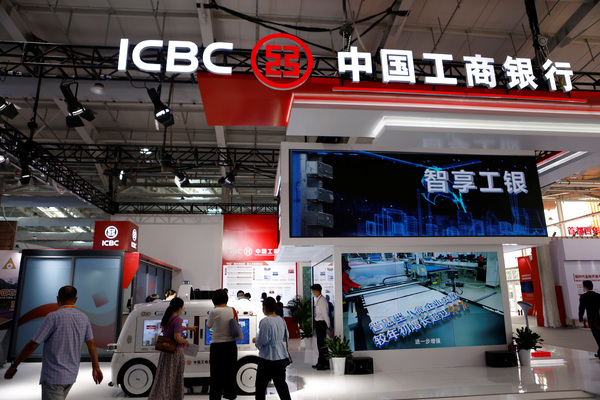Why intentional polymaths lead businesses to greatness

Melanie Sweet at MediaLink explores the power of leaders who have taken multiple paths on the way to the top
With the AI revolution, ESG transformation, hybrid working, social commerce, financial volatility and rising inflation, among many others, the business world has experienced no end of disruption over the past few years. And if we’ve learnt anything, it’s that the only certainty is change.
In response to the shifting business landscape, companies are evolving who, how and why they hire. They’ve accelerated the transformation of the global workforce, in which the sought-after skills and capabilities of yesterday are not the ones of today, and certainly not the ones of tomorrow.
This transformation can be clearly seen at the top of businesses, where the C-Suite mix required to steer the ship has had to evolve. Since 2019, the roles of the Chief Delivery Officer, Chief Growth Officer, Chief People Officer and Chief Diversity and Inclusion Officer have experienced hiring growth of over 100%, reflecting the need for more inclusive workplace cultures, good growth, and greater tech investment, among other things.
As the need for different approaches to business growth, strategy and innovation calls for new roles and new types of leaders, the ones who have taken multiple paths on their way to the top are in demand by businesses looking to ride the waves of volatility to success.
The rise of intentional polymaths
Historically, C-suite leaders charted a well-anticipated route to the top. CMOs started their careers as product managers before ascending through the ranks of the marketing department. And over time, this has set the expectation that the best leader for the job has taken the path well-trodden.
Now, strikingly, the opposite is becoming true: leaders who have moved roles in line with evolving technology and shifting audiences, preceding the needs of businesses, are now seen for the depth and breadth of value they bring. By purposefully crafting their career path, they’ve become intentional polymaths, offering a varied portfolio of experience, perspectives, and merit to solve complex business challenges.
This shift in perspective is particularly true for B2B organisations, who have felt many headwinds in recent years and have learnt that pivoting quickly is critical to staying afloat. For this reason, they are more inclined to look ahead and choose candidates that bring more than the standard experience and what’s on the job description. Leaders who have been thoughtful with their career choices, taking risks to ensure they gained as much experience across all business functions, from D2C to comms.
The fantastic Jill Kelly, a marketer at heart, is now at the helm of the newly merged EssenceMediacom in the US. She is a leading example of how thoughtful career choices can achieve critical value and experience and take you down the path to CEO. Similarly, Helena Marston of Purplebricks has showcased a dedication to the continuous evolution of her career. Her experience of rapid business transformation and growth from her various HR-focused roles at Vodafone, Jaguar Land Rover, and Virgin Media empowered her to lead a global team as CEO.
Disrupting your C-suite
If businesses want to be good, they’ll bring in someone who’ll pick up the mantle of their predecessor. If they want to be brilliant, they need someone who can shake up their C-suite’s existing perspectives and create a strategy the business hasn’t pursued before.
Leaning into the new guard of intentional polymath leaders makes sense for businesses looking to move at pace and stay competitive. It is much faster to bring in someone with both breadth and depth of diverse experiences than augment the entire C-suite to meet evolving demands; yet it will most likely translate to incremental skill sets and mindsets that will set the business up for the future.
This disruptive approach creates positive tension but is fundamental to optimisation. Forward-thinking companies leverage it to go from good to great and bring a whole fresh perspective and direction based around those individuals, ultimately helping achieve financial objectives and rethink the entire ambition for the business.
Progressive employers will seek to adapt the job descriptions, KPIs, and compensation models around this example of talent. It’s not easy to do, but good talent is worth adapting to.
Finding the future leaders
Hiring has long been dictated by short-term demand - instead of long-term thinking - which locks companies and their talent into narrow lanes. So, as businesses charge ahead into more volatility, it’s important to understand the skills that they should pay attention to when searching for the spectacular people who will drive their business in the years to come.
A global lens - As the world becomes more connected, leaders with what might have looked like an unconventional and risky path not long ago, who have purposefully built an understanding of navigating business across regions by working in different markets, can be invaluable.
A visible resilience - To build sustainable value in turbulent times, experience navigating through the bad times, not just the good, will count more than ever. Leaders who have successfully battled the velocity of change from previous cycles of disruption will have gained the professional scar tissue needed to lead into an uncertain future.
An intentional mindset - As the business landscape continues its uncertain trajectory, leaders must understand how to look through the lens with the commercial reality and holistic ethos in mind to strike the right balance of positive disruption.
An empathetic motivator - A business leader’s ability to rally the workforce around the reality of the future is testament to their capability to take multiple roles when the economic climate causes tough demands. An empathetic motivator knows how they can influence their team to drive positive change in line with business goals.
So, as the economic climate continues to disrupt, changing the needs of businesses, those who prioritise adaptability and unconventional experience will stand stronger on the other side.
With all the skills that companies look for, the pinnacle is an individual who can offer them all in a collective tangible skill set for team members to adopt, creating a rippling effect across the wider business. If businesses are investing in new ways to push forward, the talent agenda must follow suit.
Melanie Sweet is SVP, Global Talent Advisory, MediaLink
Main image courtesy of iStockPhoto.com

Business Reporter Team
Most Viewed
Winston House, 3rd Floor, Units 306-309, 2-4 Dollis Park, London, N3 1HF
23-29 Hendon Lane, London, N3 1RT
020 8349 4363
© 2025, Lyonsdown Limited. Business Reporter® is a registered trademark of Lyonsdown Ltd. VAT registration number: 830519543





